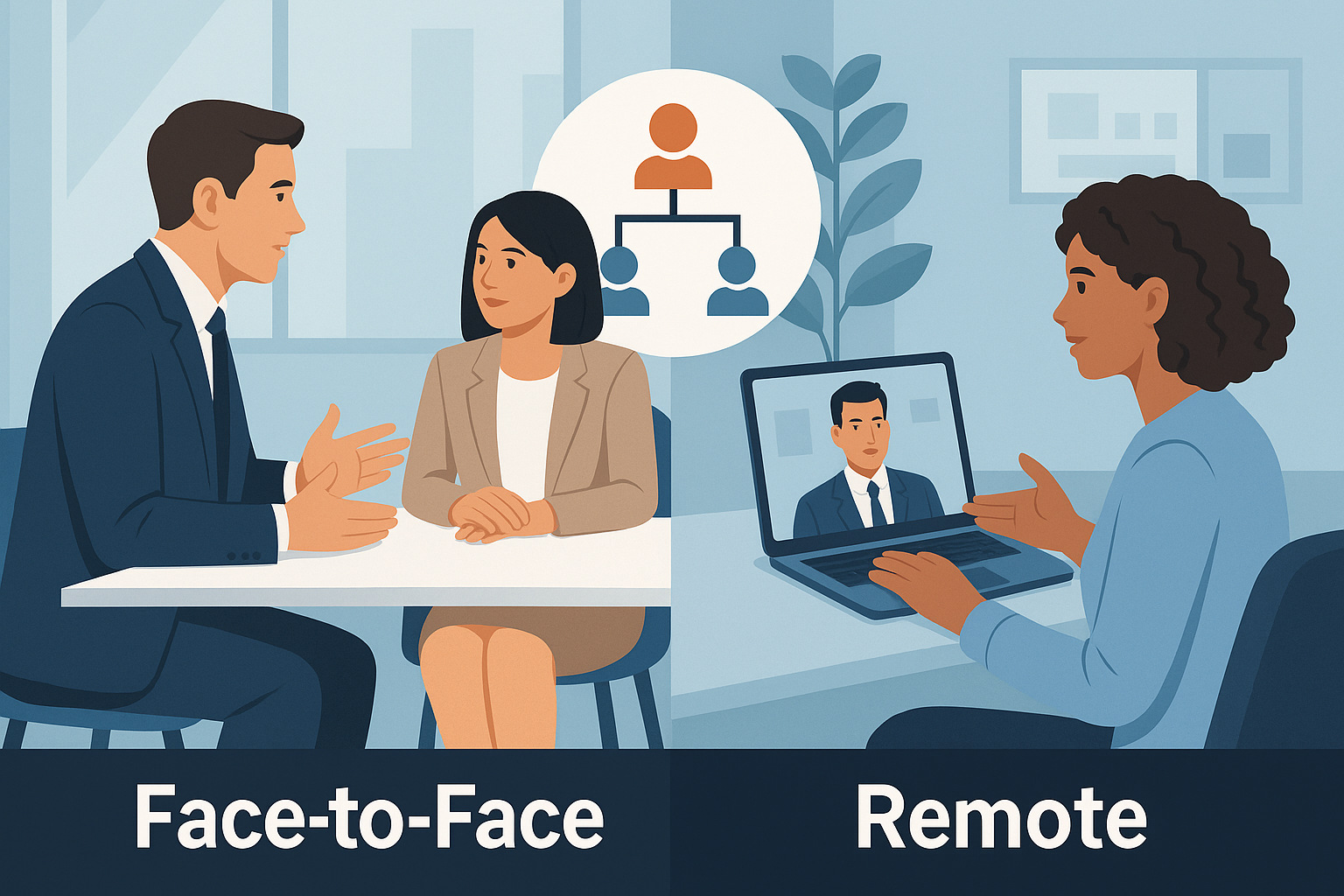
Human resources consulting is evolving rapidly, driven by technological advances and changing workplace expectations. As more companies embrace flexible work arrangements, HR leaders face a crucial decision: should they opt for traditional face-to-face consulting, or leverage the efficiencies of remote HR services? In 2025, the answer isn’t always straightforward. Each approach offers unique benefits and challenges that can significantly impact your organization’s culture, efficiency, and bottom line. Understanding the differences and how they align with your business goals is essential for making an informed choice that supports both your people and strategic objectives.
To make the right decision for your organization, it’s important to clearly understand what distinguishes face-to-face HR consulting from remote HR consulting. Both approaches aim to provide expert guidance on HR processes, compliance, talent management, and organizational development, but they do so using different methods of interaction and communication.
Face-to-face HR consulting refers to a traditional model in which HR consultants meet directly with clients, either at their offices or another physical location. This in-person approach allows for real-time interaction, hands-on facilitation, and the ability to observe organizational dynamics up close. It’s particularly effective for activities that benefit from a personal touch, such as sensitive employee relations, leadership development, or workplace investigations.
Remote HR consulting, on the other hand, leverages digital tools and communication platforms to deliver HR expertise from a distance. Consultants interact with clients via video calls, emails, instant messaging, and collaborative online platforms. This model enables access to top-tier talent regardless of location, and often allows for more flexible scheduling and faster response times. Remote HR consulting has become especially prevalent in recent years, as organizations have adapted to global disruptions and the ongoing shift toward remote work. "Remote work has increased by 44% over the last five years."
While both face-to-face and remote HR consulting share a common goal—empowering organizations to manage their human capital more effectively—the choice between them depends on your unique business needs, culture, and strategic priorities.
Despite the rise of remote work, face-to-face HR consulting remains a valuable option for many organizations. Its unique strengths stem from the immediacy and depth of personal interaction, which can be critical in certain HR situations.
Face-to-face HR consulting is ideal for organizations that value deep personal connections, need to address complex interpersonal challenges, or are undergoing significant change initiatives. It’s also well-suited for businesses where in-person collaboration is central to their company culture.
Remote HR consulting is transforming the way organizations access and benefit from HR expertise. Driven by technological advancements and shifting workforce preferences, remote consulting offers a range of compelling advantages for modern businesses.
Remote HR consulting is especially advantageous for businesses seeking agility, scalability, and the ability to tap into a wider range of HR expertise. As digital collaboration tools continue to advance, the effectiveness and appeal of remote consulting will likely grow even stronger.
Choosing between face-to-face and remote HR consulting requires a careful assessment of each model’s strengths and limitations, as well as your organization’s specific needs. While both approaches aim to enhance HR effectiveness, they do so through distinct mechanisms.
The decision ultimately hinges on your company’s culture, strategic goals, and the nature of your HR challenges. Many organizations find that a blended approach—combining elements of both models—delivers the greatest value.
When evaluating HR consulting options, it’s important to consider several key factors that will influence the effectiveness and ROI of your investment:
Carefully weighing these considerations will help ensure that your chosen HR consulting model aligns with your current needs and future growth plans. For tailored guidance, consult with an expert HR partner such as Paradigm | Expert HR Management Solutions at https://paradigmie.com.
The choice between face-to-face and remote HR consulting is more relevant than ever in 2025, as organizations navigate a rapidly shifting workplace landscape. Both models offer unique advantages, from the personal touch of in-person consulting to the efficiency and scalability of remote solutions. By understanding the strengths of each approach and aligning them with your business goals, you can empower your people, enhance efficiency, and drive long-term success. Choose the HR consulting model that fits your organization’s unique needs, and position your company to thrive in the evolving world of work.